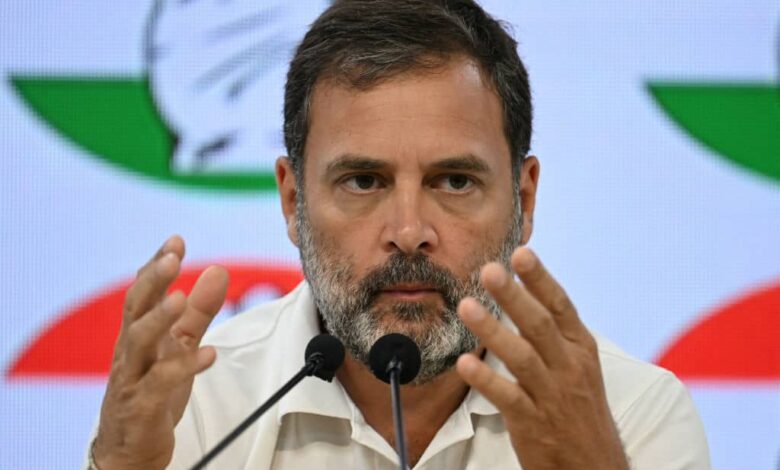
A day after President Droupadi Murmu appointed former Supreme Court judge Justice V. Ramasubramanian as the chairperson of the National Human Rights Commission, opposition Congress opposed on Thursday what it described as a “fundamentally flawed” selection process.
Leaders Rahul Gandhi and Mallikarjun Kharge recorded their dissent after a meeting of the selection committee on Wednesday. They said it was “prima facie an exercise in pre-determination bereft of the attendant tradition of mutual consultation and consensus”.
It is here that the deviation from convention erodes principles of fairness and impartiality intrinsic to the credibility of the Selection Committee. Instead of discussion and collective decision-making, the committee pushed its numerical majority without discussing the genuine concerns that came up during the discussion.
The Congress leaders noted that the NHRC played a very important role in the protection of basic human rights of all citizens, particularly those from marginal sections of society. They said the efficiency of NHRC would depend upon representation and inclusiveness in the composition. A diverse composition ensures sensitivity to the unique challenges faced by various groups, especially those vulnerable to human rights violations.
The Congress leaders, in their dissent, recommended the names of former Supreme Court judges Justice Rohinton Fali Nariman and Justice K.M. Joseph for the post of chairperson, citing that both candidates combine merit with inclusivity. Justice Nariman is an erudite jurist from the minority Parsi community and is known for his dedication to constitutional values.
His selection would demonstrate the NHRC’s commitment to reflecting the pluralistic character of Indian society. Similarly, Justice Joseph, from the minority Christian community, has consistently delivered judgments that uphold individual freedoms and protect the marginalized.
The Congress leaders recommended Justice S. Muralidhar, former Chief Justice of the Orissa High Court, and Justice Akil Abdulhamid Qureshi, former Chief Justice of the Rajasthan and Tripura High Courts for the membership positions in NHRC. Justice Muralidhar has passed pathbreaking orders on social justice; Justice Qureshi is from the minority Muslim community and has shown a formidable commitment to accountability in governance.
The Congress leaders impressed that while merit should be a decisive factor, it is no less important to ensure a fair balancing to reflect the regional and also the caste, community, and religious diversity of the nation. This balance is fundamentally imperative for the NHRC to function with an all-encompassing perspective sensitive to the experiences of all sections of civil society. They criticized this approach by the majority of the Selection Committee as being highly regrettable.
The NHRC draws its credibility and effectiveness from representing the rich diversity that is constitutive of the Indian constitutional ethos. The names proposed by Congress stand in keeping with this spirit and the letter and intent of the founding principles underlying the establishment of the Commission; their omission gives a cause for serious concern regarding fairness and non-partisanship in the selection process.
Justice Ramasubramanian was named chief of NHRC, with the appointment of Priyank Kanoongo and Dr. Justice Bidyut Ranjan Sarangi as members of the rights panel. Kanoongo is a former chairperson of the National Commission for Protection of Child Rights, while Justice Sarangi earlier served as Chief Justice of the Jharkhand High Court.



